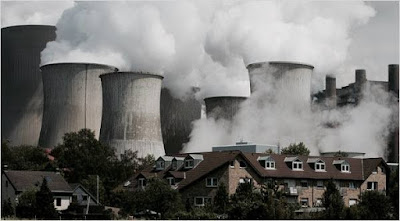Smart meters - a more efficient use of utilities
Category: Sustainability News
For decades, residential and commercial energy, water and gas were measured by one-way meters, with billing determined by periodic readings. Despite relative accuracy, these systems are cumbersome and inefficient.
Smart meters change this, improving energy efficiency to shield consumers from the rising cost of electricity and other utilities, including water and natural gas. They record consumption every hour or less, sending information directly back to the company for real-time reporting. Outside of the amount of utility used, smart meters send near-instant power, gas and water outage notifications as well as monitor quality, all with easy-to-read displays showing up-to-date information on intake.
While currently being looked at for all utilities, smart meters will soon replace standard electric meters. Smart energy meters give utility companies and consumers a clear look at energy usage and allow companies to offer lower rates during off-peak times. Because smart meters dramatically reduce the amount of labour required to monitor consumption, they also pose a direct savings, allowing investment in smart grid development concepts and other environmentally-friendly technology. They eliminate estimated bills, allowing households and companies to better budget for utility costs, and provide a realistic way for consumers to utilize energy during off-peak hours.
Due to the reduction in operation cost and improvement in energy efficiency, especially when smart meters are integrated into smart grid development (a network that works with the two-way communication to increase or decrease energy production based on local usage at any given minute), several countries are working to replace traditional meters with smart meters.
Europe: Great Britain plans to have smart meters in all residential properties by 2020 as well as most small businesses, which accounts for 30 million homes and 2 million commercial properties.
US: Six states in the US currently have solid plans to incorporate smart meters for electricity, water and gas, with Texas, Maryland and California currently working on purchasing and installing the new technology.
Canada: Ontario leads the push to have smart meters installed throughout the province, boasting 800,000 residential and commercial properties with updated smart meters.
Japan: Private corporations currently utilize smart meters throughout the country, and Japan’s Energy Conservation Centre is testing smart meters and their effect on energy efficiency.
Australia: Victoria began implementing a plan to update 2.6 million properties with smart meters. As they work towards their goal of integrating these energy efficient meters into the public utility system, Victoria is offering three separate in-home displays tied to the smart meters, eliminating the need to go outside to look at the display.
As climate change and its effects become more apparent, the energy industry and is working to change the current system as quickly as possible to improve energy efficiency and reduce human activity’s impact on the environment. Although some companies and countries are slower to adopt smart meters and similar concepts than others, no one can argue the fact that a massive overhaul of the current systems is imperative.


